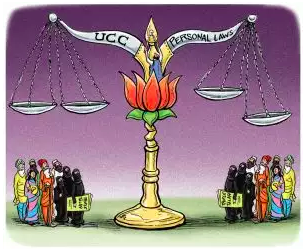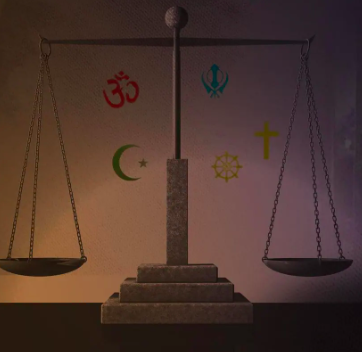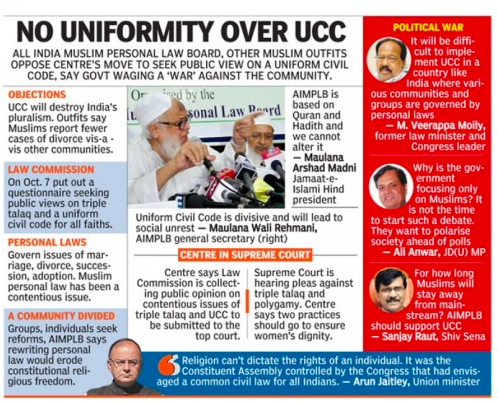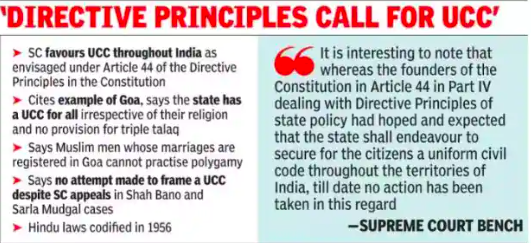The BJP announces their platform for the assembly elections in the presence of party National President J.P. Nadda, Union Minister Anurag Thakur, and Himachal President Jai Ram Thakur, and pledges to put the Uniform Civil Code into effect (UCC).

In its “Sankalp Patra,” the BJP made eleven promises, including one to create 10 lakh employment, including government positions, alongside UCC. In addition, it will begin a 10-year “Shakti Programme” that will cost $12,000,000,000 in infrastructure, transportation, and construction of holy sites before connecting them to the “HIMTEERTH Circuit.” Additionally, it includes giving women in government employment 33% of the reservations. Additional promises include the opening of new medical schools, assistance for startups through the “HIM start-up” Scheme, and giving bicycles to girls enrolled in grades 6 through 12.
In the past ten years, the use of the uniform civil code has increased. In its campaign for the 2019 Lok Sabha elections, the BJP itself emphasised the importance of implementing UCC and harmonising all traditions with the necessities of the modern world.

UNIFICATION CIVIL CODE (UCC): WHAT IS IT?
One legislation for the entire nation that applies to all religions in regard to issues like marriage, divorce, inheritance, adoption, etc. is known as a uniform civil code. Article 44 of the Indian Constitution’s Directive Principle of State Policy (DPSP), which reads, “State should endeavour to secure for people a Uniform Civil Code throughout the territory of India,” defines the Uniform Civil Code. However, the DPSP is not upholdable in a court of law.
Although “uniform” does not indicate “common,” i.e., the same rules for everyone, it does mean “same laws in considering similar conditions,” or, as we would say, “laws can be different for various citizens, but in a certain group and context the same law will apply.”
The term “civil” refers to issues involving individual rights, such as contracts, property sales and purchases, and many others.
Code is defined as Law, albeit it need not be a universal Law. It could imply that various Acts and Sections that focus on various facets are specified under a single roof. Examples include the Hindu Code Bill and the Indian Penal Code of 1860.
HOW IS IT WORKING OUT IN INDIA (BJP)?
The majority of civil cases are governed by uniform rules, such as the Civil Procedure Code, Transfer of Property Act, Partnership Act, and Sale of Goods Act, although each one also takes into account the various facets of society. And States are free to use them however they see fit. This is so that the personal laws do not fall under the “Union” List, over which the Center has sole jurisdiction, but rather under the “Concurrent” List (item No. 5), over which both the State and the Center have control. Therefore, we can conclude that this variation is not a result of the multiplicity of religions in our nation, but rather because different States have various legal systems.
Contrary to popular belief, Hinduism has uniform rules whereas other religions do not. The Hindu Code Bill also contains three separate Acts that apply to Hindus, Buddhists, Jains, and Sikhs: the Hindu Marriage Act, the Hindu Succession Act, and the Hindu Adoption and Maintenance Act. Since the Bill was introduced in 1941, when India was still a colony and wasn’t passed until 1955, these Acts also didn’t pass right away. Instead, they encountered opposition for 14 years. Even after becoming law, they had a number of faults, including the fact that girls were not given the same rights as males when it came to the father’s property until 2005, after an amendment.
Other instances where uniformity is not determined by religion include Jammu and Kashmir, where Hindus previously followed Central Laws differently until Article 370 was repealed. Additionally, Muslims in Jammu and Kashmir previously adhered to customary laws that were distinct from the personal laws that Muslims in the rest of the nation followed. Muslim marriage registration was required in Jammu and Kashmir but was optional in places like Bengal, Bihar, Assam, and Orissa.
Goa is currently the only State in the nation to have a uniform civil code.

WHY IS NOT THE UNIFORM CIVIL CODE APPLIED THROUGHOUT THE COUNTRY?
One of the main causes is that the Uniform Civil Code (Article 44), which is defined under the Directive Principles of State Policy, conflicts with the Fundamental Rights’ definitions of the Right to Freedom of Religion (Articles 25–28) and the Right to Conserve the Distinctive Culture (Articles 29). UCC also appears to be less significant than the Right to Religion because it is not included in Fundamental Rights.
Since 2019, the Supreme Court has emphasised the importance of implementing the Uniform Civil Code across the nation, and during elections in various States, including Gujarat and Uttrakhand, various governments had pledged to form a committee that could examine how to implement the UCC in the States.














